Coronavirus travel tips for those with little choice!
You really shouldn't be travelling. But here's one for those who have no choice. Be it for work, family or whatever deadly important reason you might have. Follow these tips and keep safe!
It’s official. It’s now a pandemic.
Though experts aren’t sure (yet) how exactly the COVID-19 virus spreads, governments around the world are taking precautions by imposing travelling restrictions and advising their citizens to stay indoors. Already, international flights cancelled, borders closed, and cruise ships turned away.
However, if you are reading this, you may be looking for the next flight home or need to attend to emergencies. As seasoned travellers ourselves, here are a few tips on what you should and shouldn’t do on your way back home.
The underlying principle here is to prevent getting infected and to prevent yourself from infecting others. We’ve designed this article in a way that you can refer to as a checklist to follow if you really need to travel.
First : Self-check and research
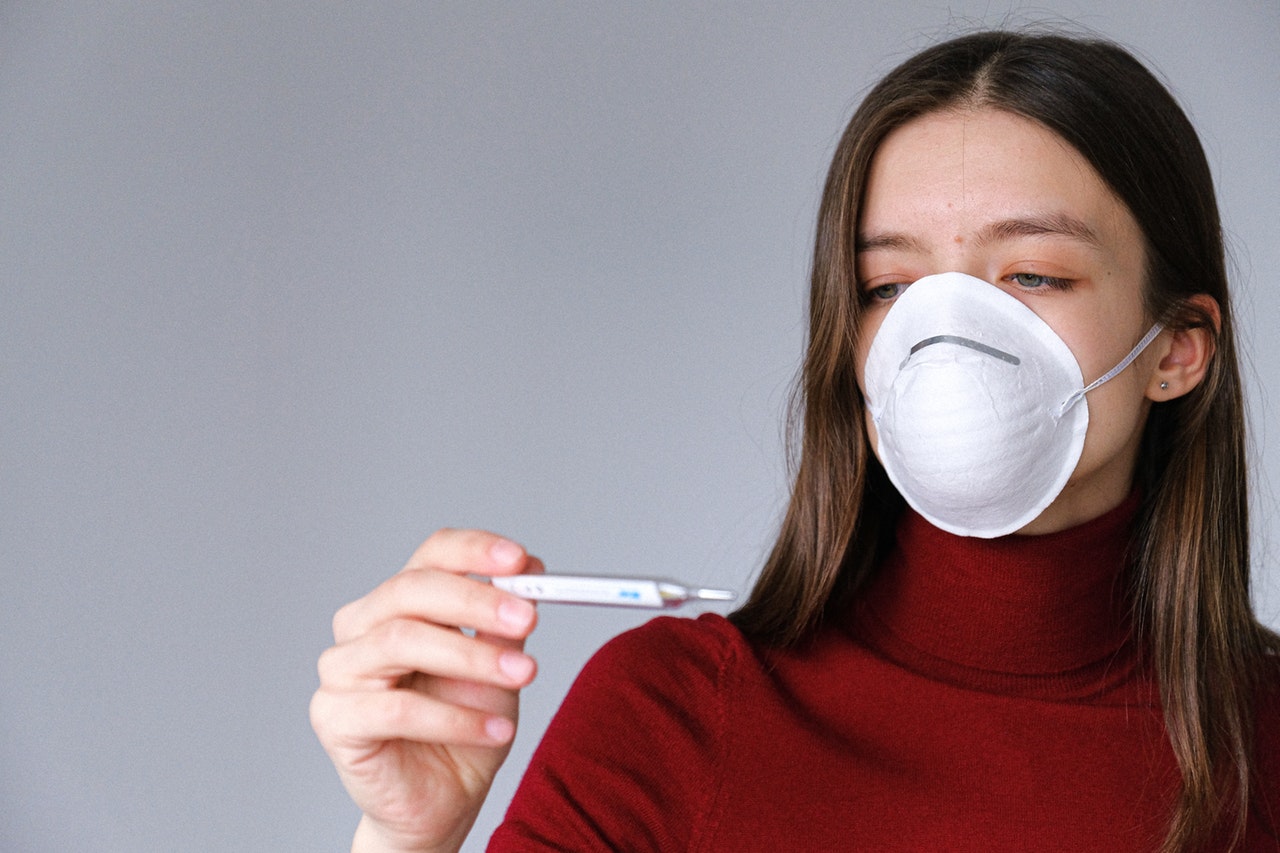
Do you really need to fly/travel right now? As the saying goes, prevention is better than cure. If you find yourself in a country closing their borders like Malaysia, Indonesia or Australia & New Zealand, it might be a better move to not move.
By going to airports or being outdoors, you’re exposing yourself to unnecessary exposure thus higher risk of catching the virus. Also, on the assumption that you’re already infected, why risk spreading it to your parents (are at higher risk), siblings, spouse and pets at home? We’re kidding, pets can’t catch the virus (phew!).
We shouldn’t need to say this but if you have no good reason to travel, cancel or reschedule your travel plans. We know flight tickets are extremely cheap now but your life (and others) isn’t!
Next up, look up on public service announcements (PSAs) and travel advisories of the country you are travelling to. Countries such as the United States have issued their highest-level travel advisory to prevent more import cases. Mainland China, Hong Kong, South Korea and along with dozens of other countries too, have halted flights.
With your research done, it’s time to buy flight tickets. With the idea of minimizing contact and social distancing, be diligent about seat selection at check-in and in the hours leading up to the flight. Before boarding the plane, ask the gate agent when you get to your gate on updates on the seats and ask (nicely) to be seated with as much distance as possible from passengers on the same flight.
Second : Plan for contingencies
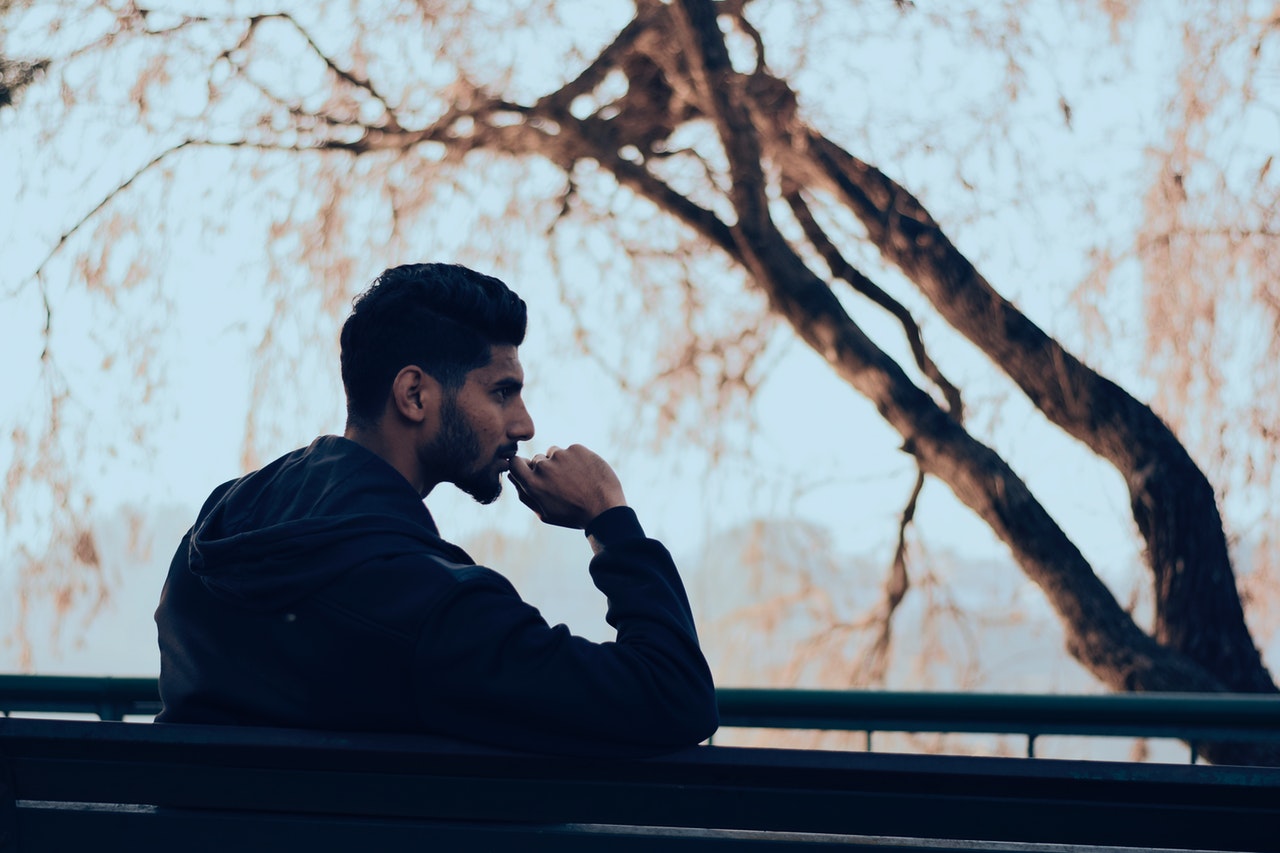
With the available news around the virus changing almost on an hourly basis, you’ll never know when inconveniences such as travel restrictions will hit you.
Before you set out for your next flight, be sure you have adequate cash on-hand, buy travel insurance and take your flu shots (if possible) to prevent catching diseases that might compromise your immune system.
Inform family members and friends on your whereabouts as frequent as possible. In the case of an emergency or if you’re uncontactable, it will be easier for them to contact the local authorities on your behalf.
Like all travel plans, always plan ahead and plan for contingencies. All ready? Let’s head to the airport.
Third : Practice good hygiene
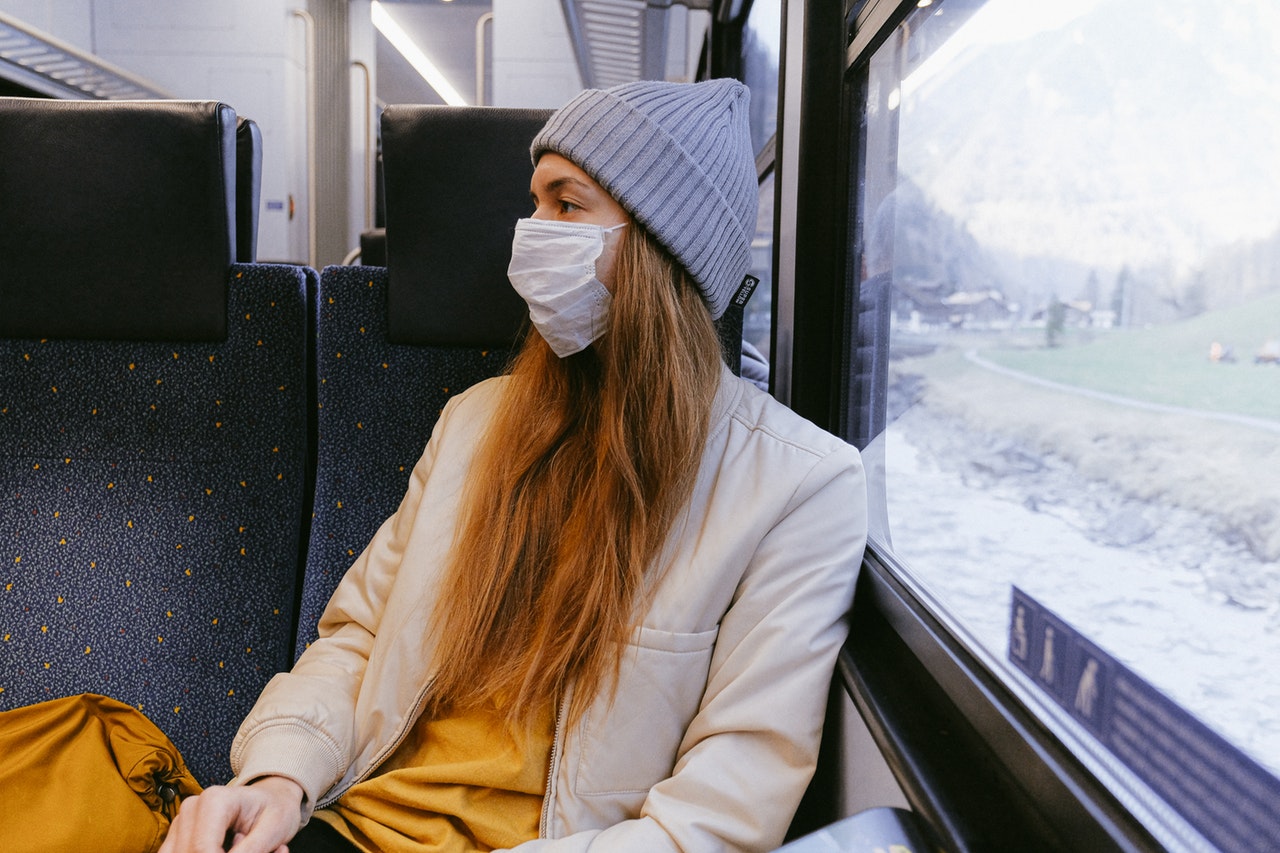
Assuming everyone outdoors now is only travelling on a need-to-travel basis, risk is expected to be lower at public places. Now we’ve established that you should travel only if necessary, we need to next, practice good hygiene.
Depending on where you are, face masks could be a scarce commodity. If you are unable to get masks and when you need to cough and sneeze, cover your mouth and nose by sneezing into your upper sleeve; not with your hands. Remember to wash your hands too, and remember to do so with adequate soup and water for at least 20 seconds.
Depending on where you are, it could be difficult or inconvenient to find a toilet. Do buy and carry hand sanitizers (with recommended alcohol content between 60% to 95%) with you and sanitize regularly. Remember, washing your hands with water and soap is always the better option!
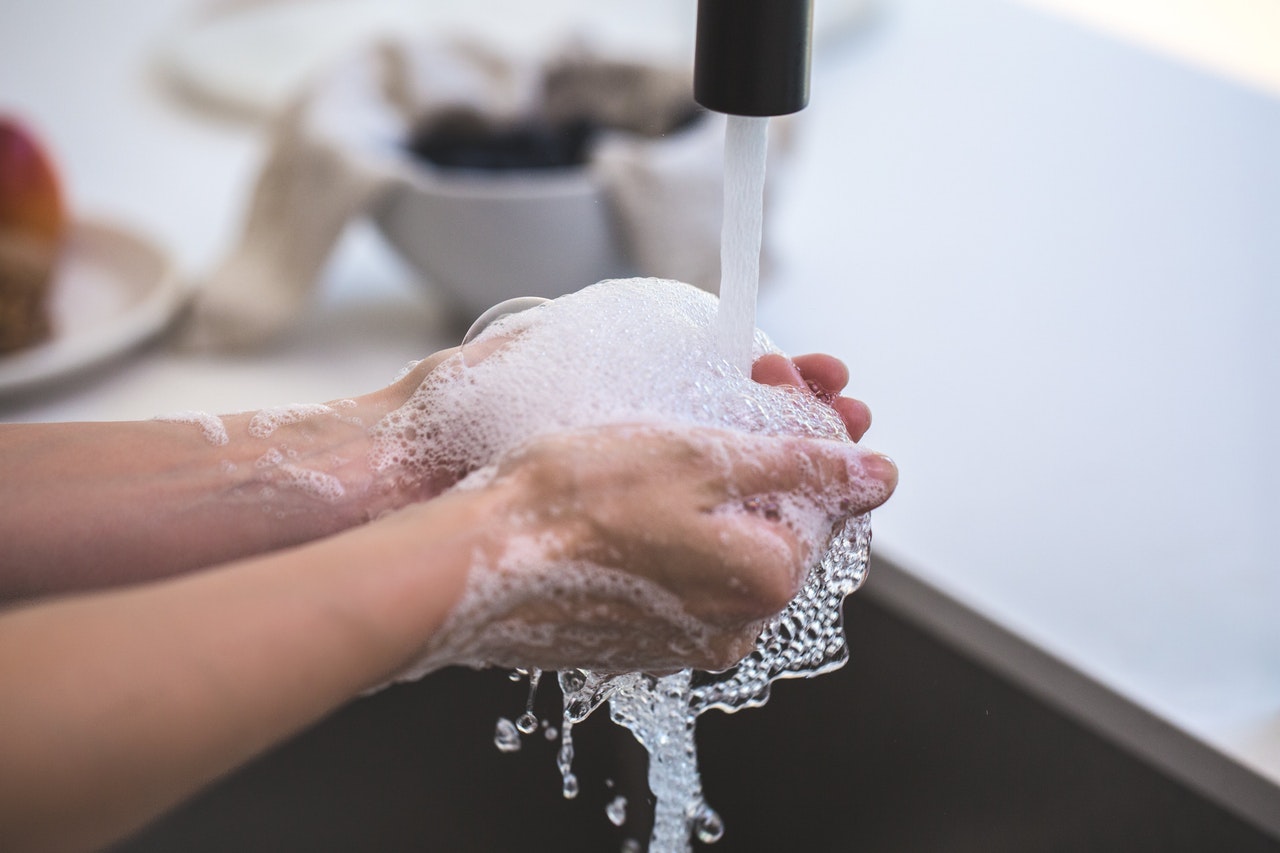
We know it’s hard, but try not to touch your face. Respiratory illnesses spread much faster by touching your face after touching contaminated objects. We are also guilty of it most of the time, therefore it’s always a good idea to wash your hands regularly.
Really though, it’s an apt time to inculcate these habits as you should be practicing these good habits even after this pandemic episode is over.
At immigration checkpoints, comply with authorities if you’re asked to step aside for random checks, or for health screening.
Fourth : Social responsibility & compliance to the law
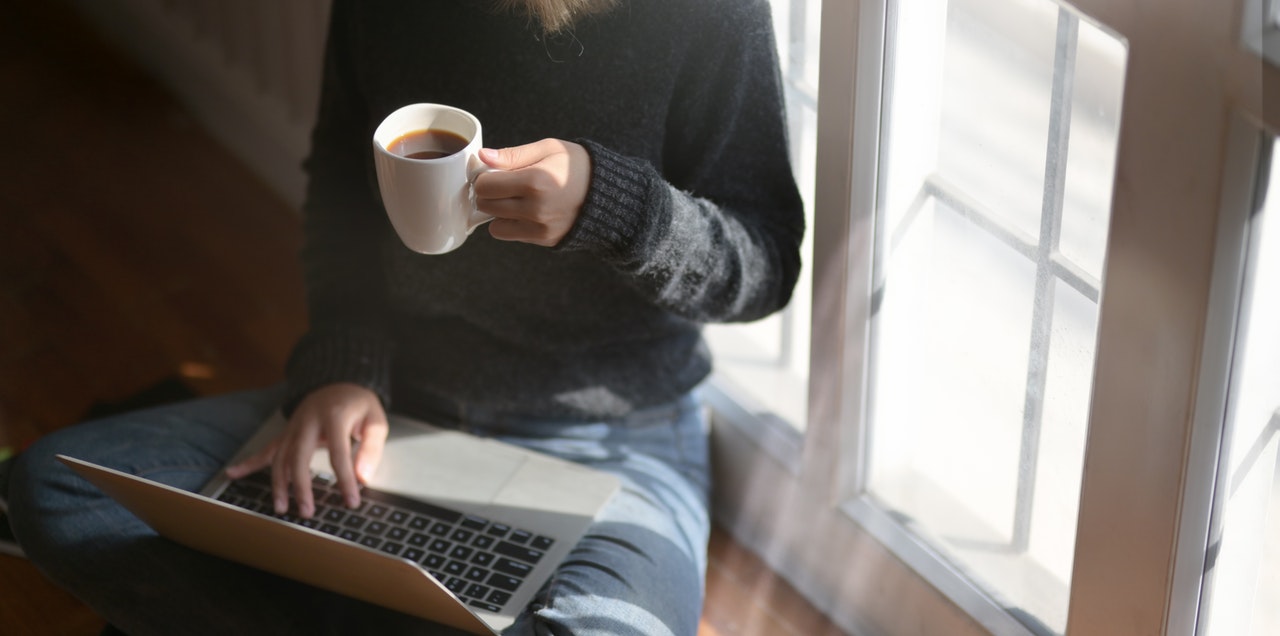
Congratulations, you’ve finally made it back home. Depending on the laws of different countries, you might be required to self-quarantine for a specified number of days. Singapore for example, only allows their citizens and permanent residents to enter the nation but with a 14 day stay-home notice.
If you are required to stay at home, practice good hygiene (again, wash yo hands!), take If in doubt or if you are showing symptoms, contact your local health/authorities to get tested. Like all illnesses, it’s always better to be treated at the initial stage.
Maintain social distancing at all times and reduce physical contact (try the Wakanda salute instead of shaking hands). Especially at transportation hubs and terminals, escalator handrails, elevator buttons and door handles are common culprits spreading the viruses. Touched by many hands before you, it’s the perfect medium to spread illnesses.

Refer to the above point again if you find it difficult to avoid physical contact: Wash yo hands!
Reduce time spent in a specific area. Whenever possible, do not dine-in at restaurants and cafes, avoid crowds in shops nor partake in long queues at the supermarket to get groceries.
Malaysia for example, has imposed a nationwide 14-day Movement Control Order since the 18th of March. This is done in hope to minimize and reduce community transmission within the nation. In Singapore, for residents asked to stay home, authorities have different ways of ensuring that you are truly at home – authorities will check on them using text messages, GPS location via their mobile phones, random phone calls and house visits.
On sharing news on social media; if in doubt, do not share lest you incite panic or spread misinformation. Only share news from credible resources such as the Centers for Disease Control and Prevention (CDC), World Health Organization (WHO), government sites and reputable news outlets.
At MetroResidences, we are playing our part in the midst of this pandemic by stepping up our weekly cleaning services to keep all of our serviced apartments clean, hygienic and as safe as possible. With everyone playing their part, conditions will definitely improve – it’s just a matter of time.
Stay safe and keep healthy!




